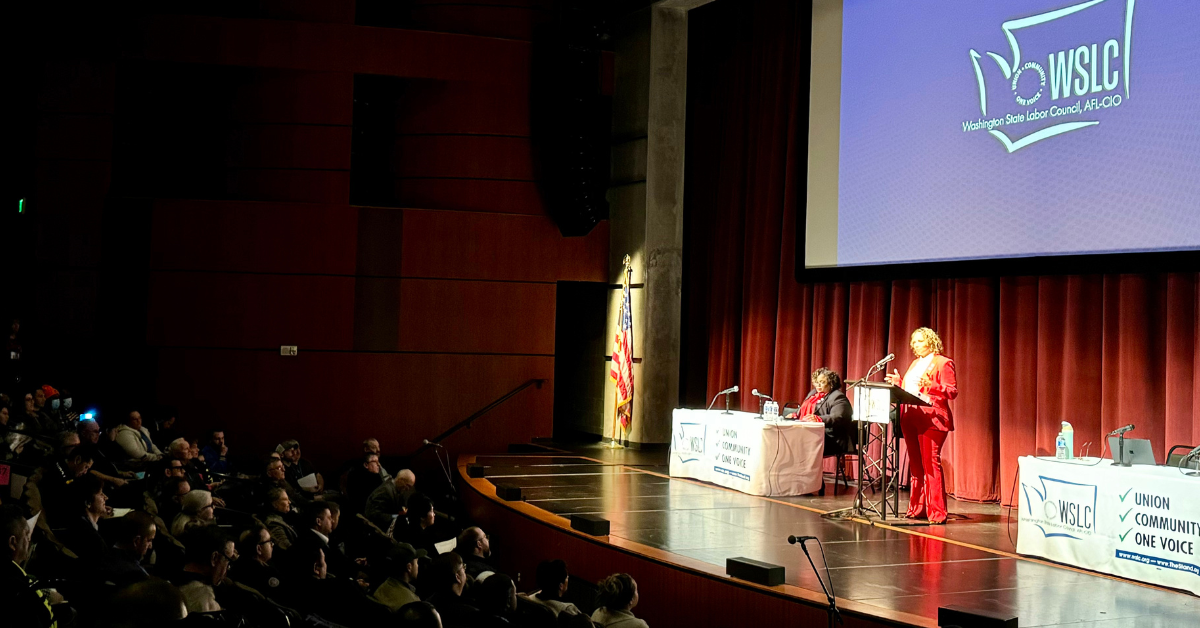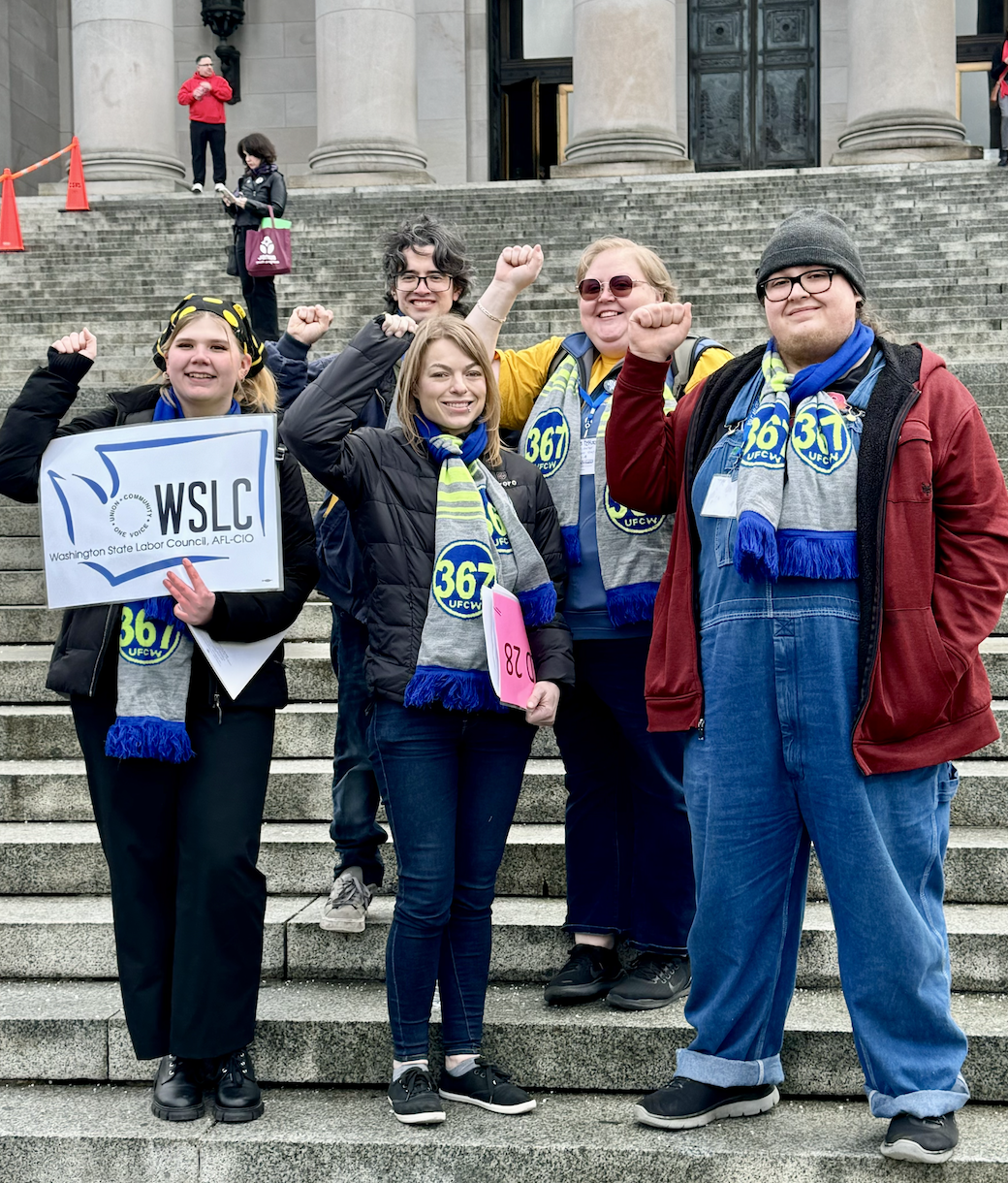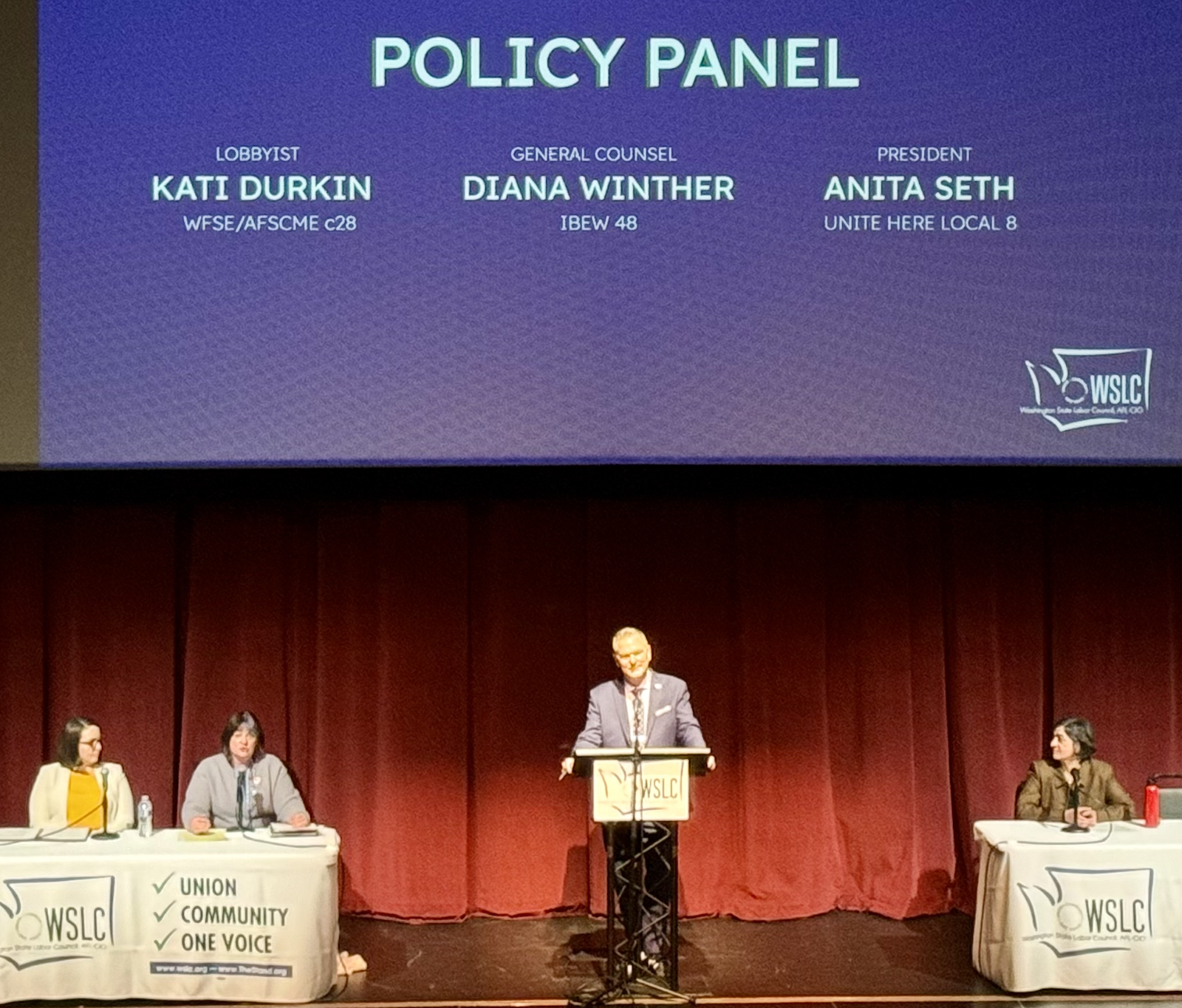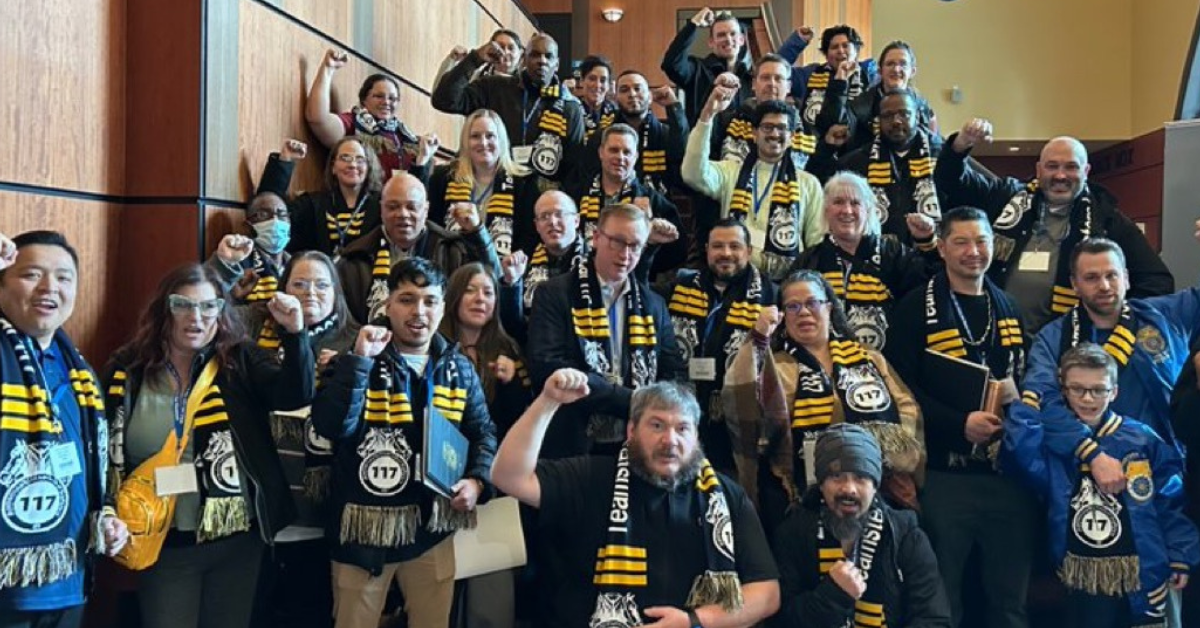W.S.L.C.
Labor brings workers’ voices to the State Capitol
Union members from across Washington gathered yesterday to urge legislators to support pro-worker policies like unemployment insurance for striking workers
OLYMPIA, WA (February 7, 2025) — Hundreds of union members gathered at the State Capitol yesterday for the Washington State Labor Council’s annual Legislative Conference, weathering the snow, sleet and ice to bring the voice of working people to the legislature. From cement masons to school teachers, union workers united to advocate for pro-worker legislation like unemployment insurance for striking workers, child safety on job sites, and public sector AI bargaining in a powerful demonstration of solidarity.
WSLC President April Sims opened the conference with a call to action: “With great power comes great responsibility. In this room, we represent more than 600,000 working people from the peninsula to the Palouse. Our communities look to us—because organized labor is the strongest force defending workers today. We are the leaders they need. And leadership doesn’t mean having all the answers—it means showing up.”

Labor gathered in this Washington as billionaires are dismantling workers’ rights in the other. Sims highlighted the AFLCIO’s newly launched Department of People Who Work for a Living, an initiative reporting the facts and calling workers to action as the federal administration continues to attack workers and our communities.
“This country wasn’t built by billionaires who inherited their daddy’s money,” said Sims. “People who work for a living built this country. Our labor, our hands.”
Worker champions and labor committee chairs State Senator Rebecca Saldaña and State Representative Liz Berry took the stage next. Both legislators share a top priority this session: getting UI for striking workers over the finish line. Introduced in the 2024 session, it narrowly missed the opportunity for a final vote, failing to pass the Senate. The bill, SB 5041, is starting in the Senate this year.
To raucous applause from the crowd, Berry shared her pride that UI for striking workers passed through the House last session, and her dedication to ensuring the bill is signed into law this year.
Attendees also heard from freshman State Representative Brianna Thomas, as well as State Senator Vandana Slatter, sharing their priorities for session. For Slatter, expanding apprenticeship and tackling housing affordability top the list. Rep. Thomas spoke to the need for revenue solutions that don’t balance the budget on the backs of working people. Or, in her succinct and clear-eyed words: “What am I excited for? Taxing the rich!”
 Revenue was a major focal point, as the state legislature faces down a multi-billion deficit. Speakers shared their commitment to protecting the essential public services Washingtonians rely on, and the public servants who provide them. In a panel, State Senator Noel Frame laid out the real life impact of Washington’s upside down tax system, that largely gives the ultra wealthy a pass while placing the tax burden on working families.
Revenue was a major focal point, as the state legislature faces down a multi-billion deficit. Speakers shared their commitment to protecting the essential public services Washingtonians rely on, and the public servants who provide them. In a panel, State Senator Noel Frame laid out the real life impact of Washington’s upside down tax system, that largely gives the ultra wealthy a pass while placing the tax burden on working families.
“With the exception of the capital gains tax, our tax code is morally bankrupt,” said Frame.
The labor leaders who joined her on the panel agreed. Djibril Diop, of the Washington Education Association, shared how this anti-worker tax structure doesn’t just hurt families’ pocketbook — it can limit opportunity, too. Underfunding of schools, a chronic issue in a state with a robust economy that draws businesses and workers alike, undercuts students’ futures, no matter how hard parents work to provide a good life for their kids.
Billy Wallace, from the Washington and Northern Idaho Laborers, elevated an important aspect of the revenue conversation: the cascading positive impacts of job growth. Investments in transportation infrastructure, for example, both build needed bridges, roads, and more — but they also create jobs, employing people in communities around the state. Those knock-on effects move through local economies; more jobs means more money in folks’ pockets, which more likely than not translates to dollars into local economies and ultimately more tax revenue. Bold action to raise needed revenue is a win-win.
“It’s common sense,” said Wallace. 
Labor leaders rounded out the morning program with a run-through of some of labor’s top legislative priorities this session, prepping the crowd for the afternoon’s meetings with legislative offices. Anita Seth, of Unite Here Local 8, shared how impactful UI for strikers would be for lower-wage workers, like the Local 8 hotel workers who struck in SeaTac this past fall — the first hotel strike for the local in forty years.
Kati Durkin, WFSE, spoke to the importance of lifting the AI bargaining restriction limiting public workers’ bargaining rights (HB 1622/SB 5422), not just for impacted workers themselves, but for all Washingtonians who rely on public services which could be harmed by use of untested tech. And Diana Winther, IBEW 48, elevated HB 1644, which would strengthen rules around youth work permits and increase fines on companies that violate youth labor laws.
“We cannot allow children to be put in danger,” said Winther.
As union workers streamed off buses and across the Capitol campus, they joined the hundreds of other Washingtonians who came to Olympia to advocate for their communities. As they moved from building to building, they not only educated legislators on working peoples’ needs, but perhaps inspired a new generation as well. Passing a group of union members decked out in their signature black and yellow scarves and jackets, a wide-eyed little kid turned to his father in awe and asked, “Who are those people?”
“Teamsters,” his dad replied. “That means they’re union.”






